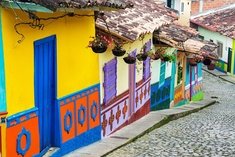Featured Quizzes
User Quizzes
Create Quiz
Data and Charts
Badges and Games
About JetPunk
JetPunk Shop
Dark Mode

Countries by Wikipedia Descriptions
Can you name the country based off a description from its Wikipedia article?
Answer must correspond to the yellow box.
Rate:
Last updated: January 7, 2019
You have not attempted this quiz yet.
More quiz info >>
| First submitted | January 7, 2019 |
| Times taken | 519 |
| Average score | 80.0% |
| Rating | 4.60 | Report this quiz | Report |
5:00
Enter answer here
0
/ 20 guessed
Time Used
00:00
Best Time
00:00
The quiz is paused. You have remaining.
Scoring
You scored / = %
This beats or equals
% of test takers
also scored 100%
The average score is
Your high score is
Your fastest time is
Keep scrolling down for answers and more stats ...
|
No comments yet
New and Popular
Save Your Progress
Copyright H Brothers Inc, 2008–2024
Contact Us | Go To Top | View Mobile Site
